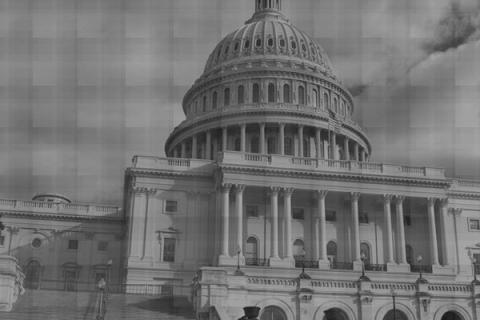According to the Los Angeles Times, a California-based Federal districtcourt has taken up the question of whether California'sprison overcrowding violates the prisoners' "constitutional rights."The case name has not been released to the public, and there may be no singlecase, for the question comes on the heel of multiple lawsuits filed byattorneys claiming medical neglect of prisoners constitutes an infringement oftheir Constitutional rights.
The objectionable part of this situation is notthe fact that the court has taken the case, however - certain instances oflitigious zealotry will always make it to court - but rather that the court,despite not having officially ruled in either direction, has apparently begun"speaking and acting as if they have already decided to take actionagainst the state", at least according to the Times.
What on earth does it take to placate these would-bejudicial despots? Apparently not satisfied with alreadybeing repudiated for their activism once, the court system appears to bedetermined to force California'scitizens to accept yet another instance of constitutionally dubiousinterference. This time, they are doing this by arguing that murderers, rapistsand thieves have an inviolable right not only to standard excesses of the Warren court, but to elbowroom.
Before dissecting the absurdity of this instance of judicialmalfeasance, it may be worthwhile to first explain the full argument of theplaintiffs. The plaintiffs argue, according to the Times, that the overcrowdingof California's prisons has adirect correlation with lack of proper medical/psychological care within theprisons, and that as a result, the mental and physical health of the inmates issuffering to such an extent that it may amount to a violation of the inmates'constitutional rights. Though the article does not explain which"rights" this would violate specifically, the only possible argumentone can foresee is that these conditions are a violation of the inmates' dueprocess rights. That is, the clause in the FourteenthAmendment which states that no person "shall be deprived of life,liberty or property without due process of law" supposedly forbids prisonsfrom being overcrowded.
In a pre-Warren Court world, this sort of argument would belaughed off before it even reached the docket. However, California has thegreat misfortune of having its district courts supervised by the 9th U.S.Circuit Court of Appeals, one of the most infamously activist circuits in thecountry. As such, the district judges in Californiahave very little incentive to fear that their activist decisions will beoverturned by such a body. That is, assuming their activism swings reliably toport side, but in San Francisco(where the courts are located), that is something of a foregone conclusion.
Assuming the Times is telling the truth about the directionthe court will go, the reader fluent in constitutional law should experience aneerie sense of Déjà vu and perhaps flashback to Justice John Harlan's dissentin Mirandav. Arizona, in which Harlan wrote: "Nothing in the letter or thespirit of the Constitution or in the precedents squares with the heavy-handedand one-sided action that is so precipitously taken by the Court in the name offulfilling its constitutional responsibilities."
A key distinction must be made here. It may be – in fact, itis unquestionable – that prison overcrowding is an undesirable condition forall parties and that a policy that reduces overcrowding would be desirable,assuming it didn't distort other elements of the justice system. However, it isnot sufficient constitutionally to argue that something is good policy. Thealternative must actively transgress the Constitution and, like it or not,there is nothing at all either in California'sConstitution or in the United States Constitution that says anything directlyabout the right to good mental or physical health.
Of course, we all know that the actual text of the UnitedStates Constitution is no obstacle to the ideas of activist judges, but theystill find it necessary to use the document as an excuse so as to avoid theperilous shade of Lochnerv. New York (a case so infamously incoherent that it earned its own verb),which constantly hovers, waiting to consume judicial credibility.
Therefore, one can anticipate some sort of gobbledygookabout "evolving standards of decency" or "living,breathing" constitutionalism or, god forbid, "penumbrasand emanations." There is also likely to be some sort of reference tosociological jurisprudence, a practice which unfortunately gained credibilitybecause of its application in Brown v. Board of Education(hyperlink), and hassince been used to justify all sorts of less historically important, and moreincoherent, decisions.
Naturally, the case will likely end up in front of theUnited States Supreme Court but if it doesn't, the justices should be warned toconsider something far more dangerous to their credibility than ajurisprudential slap on the wrist from Scalia, Thomas, Roberts et al. The Timeswarns that if this case is decided against the state, its logical outcome couldbe the mass release of a large number of prisoners. If there ever were a morecast-iron excuse for backlash against the court, it is this, and consideringSchwarzenegger's recent love of heavy-handed tactics, one can imagine aJacksonian response to such a decision – "the girly men on the Court havemade their decision, now let them enforce it!" Thus, the perils oftinkering with the rule of law would be laid bare – for these wise men in robeswill not long survive unless they allow those tasked with enforcing legaledicts to do their jobs in imperfect circumstances.
The Constitution leaves no elbow room for activism, and as aresult, the right to elbow room deserves a swift rejection.
